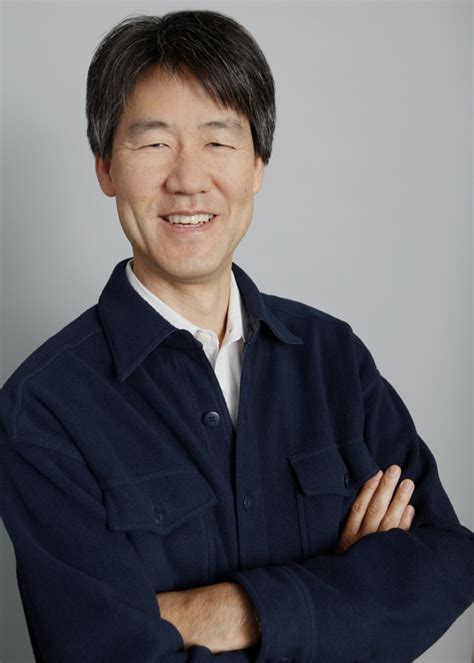A Quote by Richard Leakey
The whole story is about change. We are very lucky that the earth's history is recorded in fossilized remains. And we can see the changes. Unfortunately, there will always be gaps in our knowledge, but there is no doubt that we and everything living today has evolved.
Related Quotes
Even if it’s a dumb story, telling it changes people just the slightest little bit, just as living the story changes me. An infinitesimal change. And that infinetisimal change ripples outward —ever smaller but everlasting. I will get forgotten, but the stories will last. And so we all matter —maybe less than a lot, but always more than none.
Climate has always changed. It always has and always will. Sea level has always changed. Ice sheets come and go. Life always changes. Extinctions of life are normal. Planet Earth is dynamic and evolving. Climate changes are cyclical and random. Through the eyes of a geologist, I would be really concerned if there were no change to Earth over time. In the light of large rapid natural climate changes, just how much do humans really change climate?
On the whole, dialogue is the most difficult thing, without any doubt. It's very difficult, unfortunately. You have to detach yourself from the notion of a lifelike quality. You see, actually lifelike, tape-recorded dialogue like this has very little to do with good novel dialogue. It's a matter of getting that awful tyranny of mimesis out of your mind, which is difficult.
Five hundred years before Christ was born, the Greek philosopher Heraclitus told his students that "everything changes except the law of change". He said: "You cannot step in the same river twice." The river changes every second; and so does the man who stepped in it. Life is a ceaseless change. The only certainty is today. Why mar the beauty of living today by trying to solve the problems of a future that is shrouded in ceaseless change and uncertainty-a future that no one can possibly foretell?
I do not accept any absolute formulas for living. No preconceived code can see ahead to everything that can happen in a man's life. As we live, we grow and our beliefs change. They must change. So I think we should live with this constant discovery. We should be open to this adventure in heightened awareness of living. We should stake our whole existence on our willingness to explore and experience.
At the end of history the whole earth has become the Garden of God again. Death and decay and suffering are gone. . . . Jesus will make the world our perfect home again. We will no longer be living 'east of Eden,' always wandering and never arriving. We will come, and the father will meet us and embrace us, and we will be brought into the feast.
The reason for teaching history is not that it changes society, but that it changes pupils; it changes what they see in the world, and how they see it.... To say someone has learnt history is to say something very wide ranging about the way in which he or she is likely to make sense of the world. History offers a way of seeing almost any substantive issue in human affairs, subject to certain procedures and standards, whatever feelings one may have.
Men come and go, cities rise and fall, whole civilizations appear and disappear-the earth remains, slightly modified. The earth remains, and the heartbreaking beauty where there are no hearts to break....I sometimes choose to think, no doubt perversely, that man is a dream, thought an illusion, and only rock is real. Rock and sun.
The technology is really where all of the changes have taken place, but the fundamentals of a good story being the basis of every good picture, and really the only basis still remains the rule, more so today, I think, because we've unfortunately weaned an audience from birth to kind of mindless movies.






































